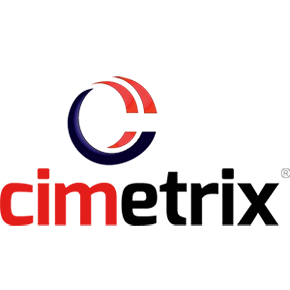 Join us as we meet the Leadership Team of Cimetrix in our “Meet the Team” series.
Join us as we meet the Leadership Team of Cimetrix in our “Meet the Team” series.
Bill Grey holds the title of Distinguished Software Engineer at Cimetrix. He joined Cimetrix in 1999 and has filled multiple roles since that time. Grey has been developing software for more than 25 years in a variety of industries including Philips Broadcast Television Systems, Boeing Commercial Airplanes, and the U.S. Geological Survey. He specializes in Windows software development, Scrum/Agile development, software architecture, software processes, and the software life cycle.
-----
What Brought you to Cimetrix originally?
I had been working at Philips Electronics when they shut down their division in Salt Lake City. Cimetrix was looking for a programmer to bring Windows programming into Cimetrix and I was able to fulfill that role
What's your favorite thing about working here?
Basically the people. The Cimetrix team is respectful, intelligent, honest and hardworking. As a group they follow the Cimetrix values and everyone is always willing to help each other.
What do you think makes a great software engineer?
You never "know everything" because the practice changes so quickly so it's important to have perseverance and the ability to learn.
What was the most interesting technical challenge that you’ve worked on at Cimetrix?
The most interesting technical challenge was our CIM300 product. It took many iterations of the SEMI standards over several years before the standards matured enough to be widely adopted. Dealing with different interpretations of gray areas of the standards, as well as industry requirements that were “more open” than the standards specified was a real challenge.
What is the next engineering project that you want to work on?
There are two interesting engineering projects I'd like to work on. The first is Requirements Engineering. Companies must cement how requirements are defined for new products and new product features. Processes, roles and responsibilities, and even education are required for the teams tackling Requirements Engineering. As we do a better job at defining requirements, more time will have to be spent in that phase. However, in the long run, it will reduce the amount of rework done, which is one of the biggest wastes of time in technology companies.
The second project is built-in product diagnostics. Being able to build into all our products self-diagnostics and potentially self-healing, the support team would see their workload reduced and of course it enables the customer to solve any issues without having to turn to outside help.
How do you deal with challenges that come up in your work life?
I tend to tackle thing from both sides. I like to surround my problems and make them submit. I like to work at the highest level for a bit, until some ideas start to come out, then I'll dive all the way through the solution to the bottom levels. Somewhere in-between is the solution waiting to surrender
What do you like to do in your free time?
My hobby is hobbies. I have way too many to list from blacksmithing to guitars to woodworking. I change so often that I am truly a man of many talents and a master of none.
What's the best thing that's happened to you in your time working at Cimetrix?
I met my wife...I think that sums it up pretty well!
-----




